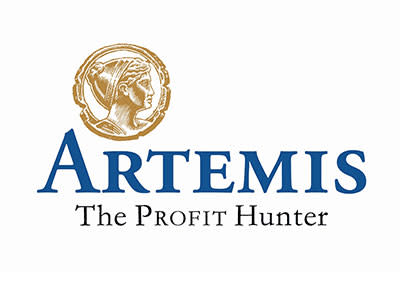Jacob de Tusch-Lec is a contrarian investor and has managed this fund since launch in 2010
The fund is separated into three buckets, each with its own unique income traits
Recent performance has been strong and above our expectations
The fund is on our Wealth Shortlist of funds chosen by our analysts for their long-term performance potential
How it fits in a portfolio
Artemis Global Income aims to deliver income and growth by investing in companies from around the world. Income is generated through a variety of sources, from mature, reliable dividend payers to lower quality, higher yielding companies. A focus on global companies perceived to be undervalued means the fund could work well alongside more growth-focused funds or add diversification to a UK-centric income portfolio.
We believe this fund offers something different to other global income funds. De Tusch-Lec’s stayed true to his philosophy during tougher periods but also shown flexibility depending on market conditions. Whilst the fund’s tended to provide a higher level of income, it’s been more volatile than most of its peers in the IA Global Equity Income sector.
Manager
Jacob de Tusch-Lec has managed the fund since launch in July 2010. After joining Artemis in 2005, he spent several years managing UK equities (shares) prior to his transition to global equities. He started his career at BankInvest before moving to Merrill Lynch, where he served as vice-president on a pan-European equity fund.
De Tusch-Lec is supported by co-manager James Davidson, who joined in 2018 from JPMorgan and has managed both global and US-focused funds during his career. Davidson has over two decades of investment experience and previously worked with de Tusch-Lec during their time at Merrill Lynch.
Both managers also manage the equity portion of the Artemis Monthly Distribution fund. Given the overlap in style and approach, we believe they can comfortably manage this workload. We like the challenge and support gained by working as a duo and think their interactions with other teams enhances their analysis.
Meet the manager of Artemis Global Income
Process
The managers carry out detailed company analysis to identify those with a healthy amount of cash to either pay dividends or buy back shares. As a contrarian, de Tusch-Lec isn’t afraid to invest in out-of-favour companies with recovery potential. He also invests in smaller companies and emerging markets, both of which increase risk.
The fund is divided into three buckets. ‘Core income’ forms the foundation of the fund and has historically accounted for around 40% of it. These companies tend to be more mature and less sensitive to the wider economy, meaning they’re able to provide a steadier dividend. However, at the end of September they represented 29%. The managers believe that with interest rates currently higher than in recent times, these companies are less attractive.
The ‘dividend growth’ bucket focuses on companies with the ability to provide an attractive and growing dividend, but which are likely to be more exposed to the health of the broader economy. At the end of September this was 41%, which makes it the largest portion of the fund.
Finally, ‘risk and special situations’ is usually the smallest of the three buckets and accounted for 30% of the fund, at the end of September. It’s home to higher risk, lower quality companies which have the potential to pay higher dividends in the future.
In addition to company-specific research, the managers take a view on the direction of the global economy. They consider factors like the economic cycle, interest rates and the yield curve. The outcome influences the amount in each bucket.
The fund invests in between 60 to 100 companies. Just under a third of the fund currently invests in US companies, which is much lower than the broader global stock market. The managers invest more than the benchmark in Europe, while the Asia Pacific region also has a meaningful allocation.
On a sector level, the fund invests in several defence companies and banks. There’s much less invested in technology companies, both hardware and software providers, than the benchmark. These allocations are different from most peers and reflect the current wider economic views of the managers, in particular that we’re heading towards a period of deglobalisation and that government defence spending is expected to continue to rise. De Tusch-Lec also believes we’re on the cusp of a recession, which will lead to a slowdown of spending by technology companies. In addition, these companies pay lower, or no, dividends, so aren’t typically considered by the managers.
The managers have the flexibility to use derivatives to help manage the portfolio, which if used, increase risk.
A number of changes have been made in the past year. Energy company Chevron and copper miner Freeport-McMoRan, both based in the US, were added to the fund, as were European banks UniCredit of Italy and Deutsche Bank of Germany.
The managers sold investments in Japanese construction equipment manufacturer Komatsu, US technology giant Oracle and British pharmaceutical company AstraZenaca.
Culture
Artemis is a private company and de Tusch-Lec is a partner in the business. We think the structure is positive for investors, as both managers and the firm are focused on the long term and can manage funds without distractions from short-term shareholder demands. Artemis also provides an attractive environment for fund managers, allowing them the freedom to operate how they best see fit without imposing a ‘house view’ on them. It’s also a collegiate atmosphere, with managers supporting and challenging each other.
ESG Integration
Investment teams across Artemis are encouraged to think for themselves and invest according to their own style, so approaches to Environmental, Social and Governance (ESG) integration across the firm vary. Recent meetings with the Artemis teams represented on the Wealth Shortlist suggest ESG is an important factor in their analysis.
Artemis has a firm-wide policy to support the aims of international conventions on cluster munitions and antipersonnel mines and therefore the firm won’t knowingly invest in companies that produce these weapons.
Artemis votes on all its holdings, unless restricted from doing so, and fund managers engage with firms to develop their understanding, raise issues with management and monitor subsequent developments. The firm provides engagement case studies, and other information about its engagement and voting efforts, in an annual Stewardship report. Artemis also provides a monthly voting summary which includes rationales for votes against management and abstentions. Stewardship activity is carried out in line with the firm’s comprehensive voting and engagement policies.
Of the funds currently under our research coverage, this fund has one of the highest ESG risk scores. While de Tusch-Lec invests in sectors with traditionally lower ESG credentials, such as mining and defence, he considers the potential risks and tries to take a ‘best in class’ approach when analysing companies. He also believes that some companies with stronger ESG credentials focus on investing heavily in ESG themes, meaning they have less cash available to pay dividends and aren’t as suitable for a fund focused on income.
Cost
The fund has an annual ongoing charge of 0.87% but HL have negotiated a 0.27% saving, so it’s available to our clients for 0.60%. The fund discount is achieved through a loyalty bonus, which could be subject to tax if held outside of an ISA or SIPP. The HL annual platform charge of up to 0.45% also applies, except in the HL Junior ISA, where no platform fee applies.
Performance
Since launch in July 2010, the fund’s return of 608.16%* is ahead of both the MSCI AC World Index and the IA Global Equity Income sector average, which rose 496.72% and 307.85% respectively. Remember past performance isn’t a guide to the future.
More recently, the fund returned 45.27% over the 12 months to October 2025, comfortably beating the benchmark and average peer.
Performance was driven by multiple themes. Commitments from a number of countries to increase defence spending has driven strong growth for businesses like Germany’s Rheinmetall and Hanwha Aerospace in Korea, which are two of the fund’s largest investments. A positive period for European banks also contributed to returns. Italy’s Banco BPM and the National Bank of Greece were among the fund’s top performers in the sector.
On the other hand, the fund’s lower exposure to technology has been a detractor. Semiconductor companies such as Nvidia and Broadcom have seen strong share price growth as AI excitement fuelled demand for their products. Investments in construction company Fluor and car company Hyundai were also weak.
While we typically expect the fund to perform strongly in a rising market, the recent level of outperformance is beyond our expectations and it’s unlikely to consistently perform that way in the future. Investors should be aware there have been times where the fund hasn’t performed as well as the market or its peers and, as with all active funds, this will happen at times in the future too. Different investment styles and investment sectors will come in and out of favour, so investors should ensure they maintain diversified portfolios.
We recently met with de Tusch-Lec who acknowledged this has been an exceptional period of performance that’s unlikely to continue indefinitely. As many companies in the fund have performed well, he’s now looking for fresh investment opportunities.
We continue to believe the fund has the potential to perform well and provide a good income over the long term, and we maintain our conviction in the managers and their investment process.
The fund currently yields 2.48%, though yields aren’t a reliable indicator of future income and any income isn’t guaranteed. The fund’s charges are taken from capital, which can increase income but reduce the potential for capital growth over time. The fund and the level of income produced can fall as well as rise in value, so investors could get back less than they invest.
Annual percentage growth
October 2020 – October 2021 | October 2021 – October 2022 | October 2022 – October 2023 | October 2023 – October 2024 | October 2024 – October 2025 | |
|---|---|---|---|---|---|
Artemis Global Income | 36.77% | 4.52% | 2.55% | 31.32% | 45.27% |
MSCI AC World | 30.04% | -4.25% | 5.37% | 25.91% | 20.54% |
IA Global Equity Income | 28.01% | 0.39% | 4.08% | 19.10% | 12.88% |


